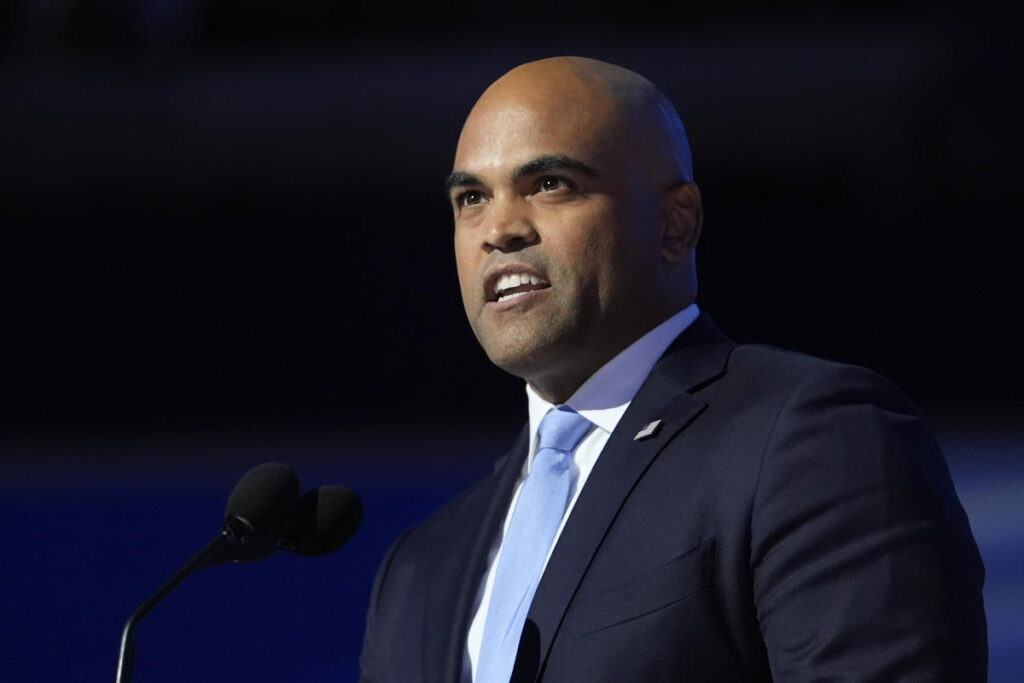In Fort Worth, Texas, the upcoming U.S. Senate race has drawn significant attention, particularly with Democratic candidate Colin Allred challenging incumbent Republican Senator Ted Cruz. With campaign ads permeating television and substantial funding flowing into the race, Allred’s rally at Tulip’s nightclub reflects a shifting political atmosphere as both parties gear up for a major showdown. Allred, a former NFL linebacker and three-term congressman from Dallas, aims to unseat Cruz, who eked out a narrow victory in 2018 over Beto O’Rourke. The stakes are particularly high for Democrats, who are defending twice as many Senate seats as Republicans, making Allred’s race one of their best opportunities to regain ground in Texas.
Despite the historical challenges faced by Democrats in Texas, Allred has adopted a more centrist approach compared to O’Rourke’s more dynamic and assertive campaigning style. He emphasizes a calm and methodical strategy, seeking to appeal to moderate voters rather than solely energizing the party base. Although some within the Democratic Party remain skeptical of his tactics, particularly as the race becomes increasingly competitive, Allred believes that differentiating himself from the party establishment and pursuing bipartisan appeal is crucial. Voter enthusiasm and the top-of-the-ticket influence of Vice President Kamala Harris could significantly impact Allred’s success, as he will need to perform strongly despite potentially lagging behind Harris in a state where Republicans usually dominate.
Key issues in the race, such as reproductive rights, play to Allred’s advantage, particularly following the Supreme Court’s ruling in 2022 that allowed Texas to impose near-complete bans on abortions. Allred has positioned abortion rights as a cornerstone of his campaign, sharing stories of constituents impacted by Texas’s restrictive laws. Additionally, he has capitalized on Cruz’s controversial move to flee to Cancun during a Texas winter storm, which resonates with voters displeased by the senator’s perceived lack of leadership during crises. These narrative points are likely to be revisited during debates, providing Allred with opportunities to contrast his values with Cruz’s record.
In stark contrast, Cruz’s campaign has taken on a more aggressive tenor as he repositions himself as a pragmatic Republican who fights against perceived Democratic overreach. His rhetoric has shifted from a strict partisan stance to one focused on uniting Republicans around common causes, specifically targeting Allred as a liberal threat. As Cruz embraces a combative style, he warns voters that failing to support him could enable extremist policies in Texas, aiming to galvanize his base, particularly in fast-growing areas like Tarrant County, which could be crucial in the election. The competitive landscape in this region suggests that any weaknesses on Cruz’s part could be perilous, as he urges his supporters to remain vigilant.
The financial dynamics of the race further underline its national significance, with both parties collectively spending over $120 million on the Texas Senate battle. This marks an unprecedented investment for such a state, and comparisons with other competitive races illuminate the intensity of this contest. The significant spending reflects both parties’ recognition of Texas as a vital battleground. While Allred has effectively raised capital and focused on advertising, some national Democratic figures have yet to match their enthusiasm, instead prioritizing defense over aggressive campaigns.
Allred’s background contributes to his appeal, as he boasts an impressive resume that resonates with Texas voters. His trajectory from a high school sports star to a civil rights attorney and elected official presents a multifaceted image that he leverages against the backdrop of a changing political environment marked by shifting voter demographics and priorities. However, critiques persist, particularly from Democrats in areas like Laredo, who feel neglected by Allred’s campaign. They express frustration over his lack of outreach, suggesting that his focus on broader statewide issues may overlook localized concerns crucial in garnering essential support in traditionally Democratic strongholds. Allred maintains that his strategy reflects an evolved political landscape, differentiating his campaign from past Democratic efforts in the state.
Overall, with less than a month until the election, the contest between Allred and Cruz encapsulates the broader national tensions within American politics, especially in a state long viewed as Republican stronghold. Voter engagement, campaign strategy, and responsive messaging to prevailing issues will all be critical as both candidates navigate the intricacies of a closely fought race. As the stakes rise, all eyes will be on Texas, watching for whether Allred can harness the current political climate to achieve a historic victory.

